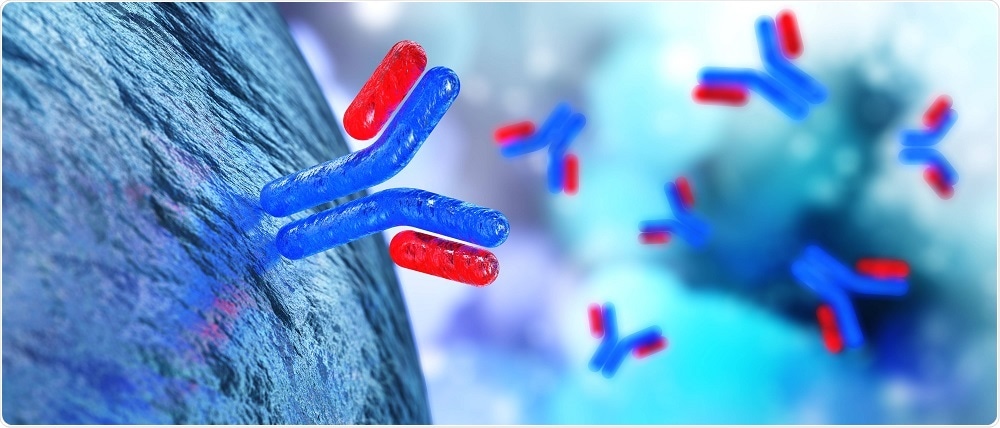
Combination of antibodies shown to cause rheumatoid arthritis
Researchers from Uppsala University have shown that severe inflammation and joint damage in rheumatoid arthritis (RA) is primarily caused by a combination of different antibodies.
 Image Credit: ustas7777777 / Shutterstock
Image Credit: ustas7777777 / ShutterstockThe findings, which were recently published in Annals of the Rheumatic Disease, could eventually lead to improved diagnosis of the condition.
To diagnose RA, antibodies to the amino acid citrulline are measured. These ACPAs (anti-citrullinated protein antibodies), which form in response to inflammation, are present in roughly two-thirds of all patients with RA.
Patients with RA who are ACPA-positive have more joint inflammation and more joint damage than ACPA-negative patients.
The tests that are used to detect ACPAs are designed to recognize most ACPAs, irrespective of the proteins they react with, but it is known that different RA patients produce antibodies against different citrullinated proteins or protein fragments.
When auto-antibodies bind to substances native to the body, immune complexes are formed that can then induce inflammation and researchers have previously shown that ACPAs can form these immune complexes.
However, no one has yet shown that immune complexes containing ACPAs are present in RA patients' body fluids, explained Professor Johan Rönnelid, who led the research team behind the study.
Now, research engineer Azita Sohrabian and colleagues have developed a way of isolating immune complexes from patients’ body fluids, which can then be combined with measurement of 19 ACPAs against different citrulline-containing protein fragments in serum and synovial fluid and in immune complexes.
Using this method to test 77 RA patients, the researchers found that no single ACPA was more associated with the degree of inflammation and joint damage.
However, the number of different ACPAs found in the immune complexes was associated with several different measures of inflammation and joint damage.
The findings support researchers’ suspicions that ACPAs form immune complexes in the joints of patients with RA, leading to inflammation.
The results indicate that no particular ACPA is of supreme importance but that the presence of a wide range of ACPAs in immune complexes in the joints can trigger local inflammation and drive joint damage.



































No hay comentarios:
Publicar un comentario